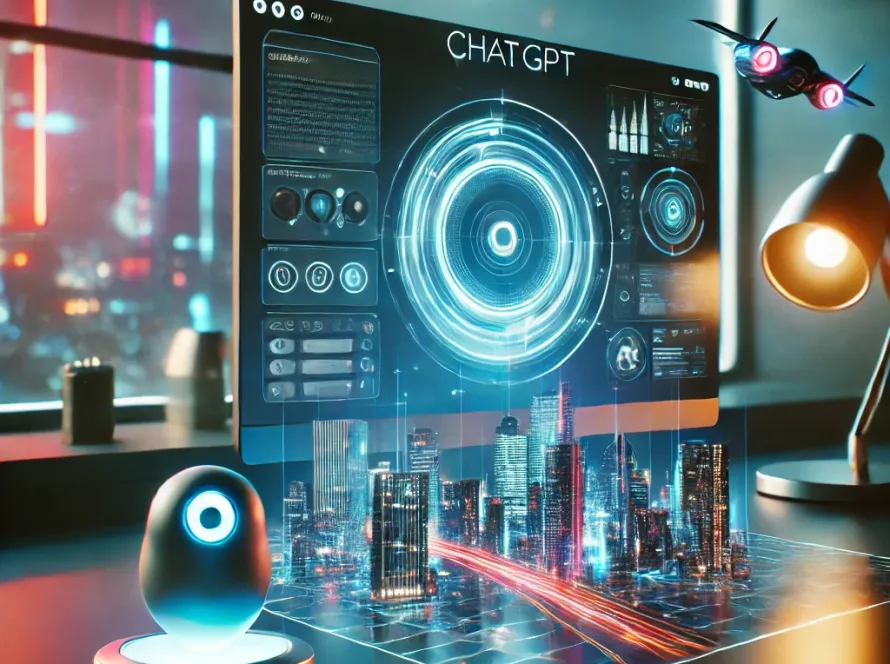The realm of smart home technology is evolving at a breakneck pace, and at the forefront of this evolution is the integration of AI-enhanced hardware. Among the most notable innovations are the new AI-driven PCs, such as Intel’s Core Ultra 200S series desktops, which bring cutting-edge AI capabilities directly into homes.
What Makes These New AI PCs Stand Out?
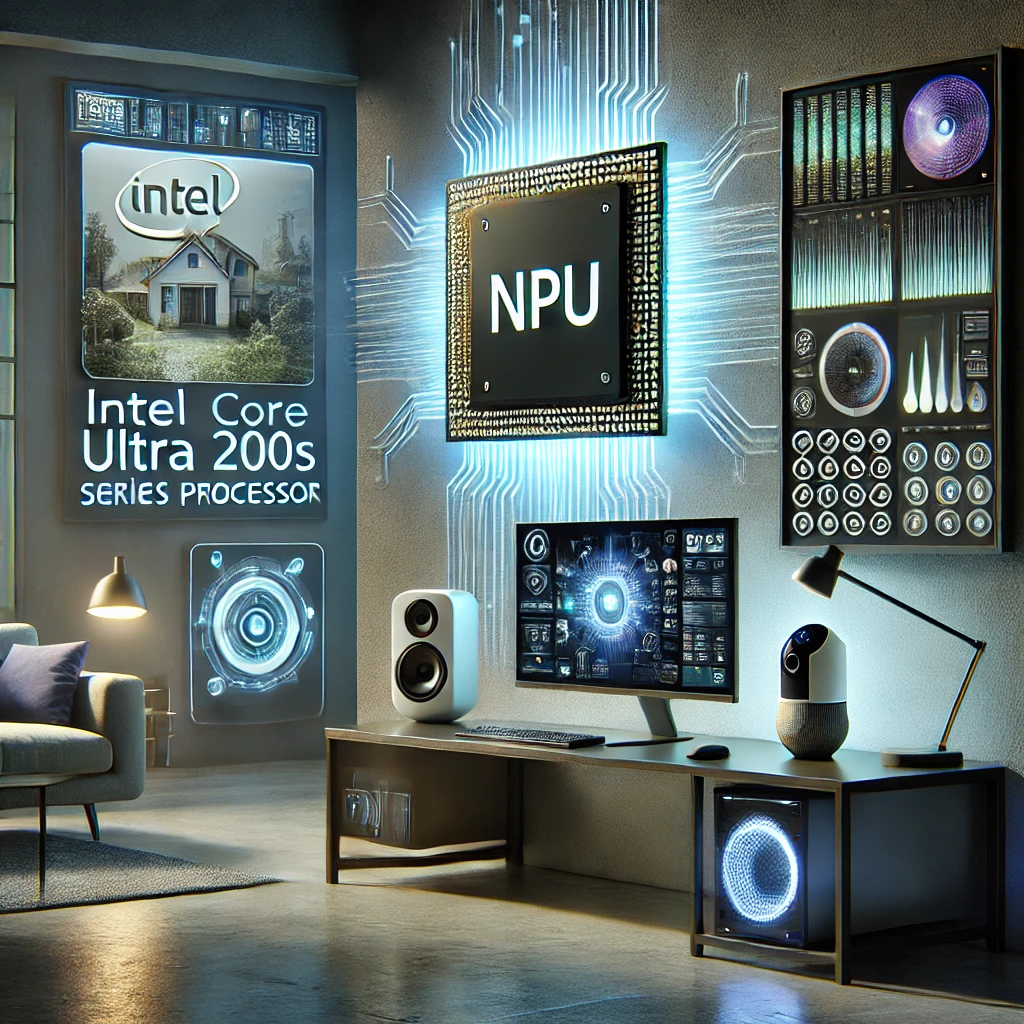
The latest advancements in desktop processors, specifically the Intel Core Ultra 200S series, are redefining what home computing can achieve. These processors are the first of their kind to integrate a dedicated Neural Processing Unit (NPU), capable of handling AI-related tasks with unprecedented efficiency. The inclusion of NPUs allows these PCs to perform AI operations directly on the device, significantly reducing latency and improving response times.
According to Intel, the Core Ultra 200S series features advanced NPU technology that empowers PCs with robust AI capabilities, making them suitable for various applications in smart homes and beyond. These processors are designed to balance high performance and energy efficiency, meeting the increasing demands of modern computing needs (source).
Key Features of Intel Core Ultra 200S-Series Desktops:
- Integrated NPU for Enhanced AI Performance: This enables real-time data processing, which is crucial for advanced AI functions in a smart home. The NPU handles complex tasks such as image and voice recognition, reducing the load on the CPU and GPU.
- Energy Efficiency: With a design focused on minimizing power consumption, these processors support eco-friendly smart home environments. While performance-intensive tasks still require energy, the integration of NPUs ensures more efficient processing.
- High Processing Power: Up to 24 cores and 24 threads provide exceptional performance for multitasking, including intensive smart home applications. This setup includes a mix of Performance Cores (P-Cores) for demanding tasks and Efficiency Cores (E-Cores) for less intensive operations.
Description: A home security setup featuring AI-powered analysis of surveillance feeds, enhancing safety with quick, real-time responses.
The Role of AI-Driven PCs in Smart Home Ecosystems
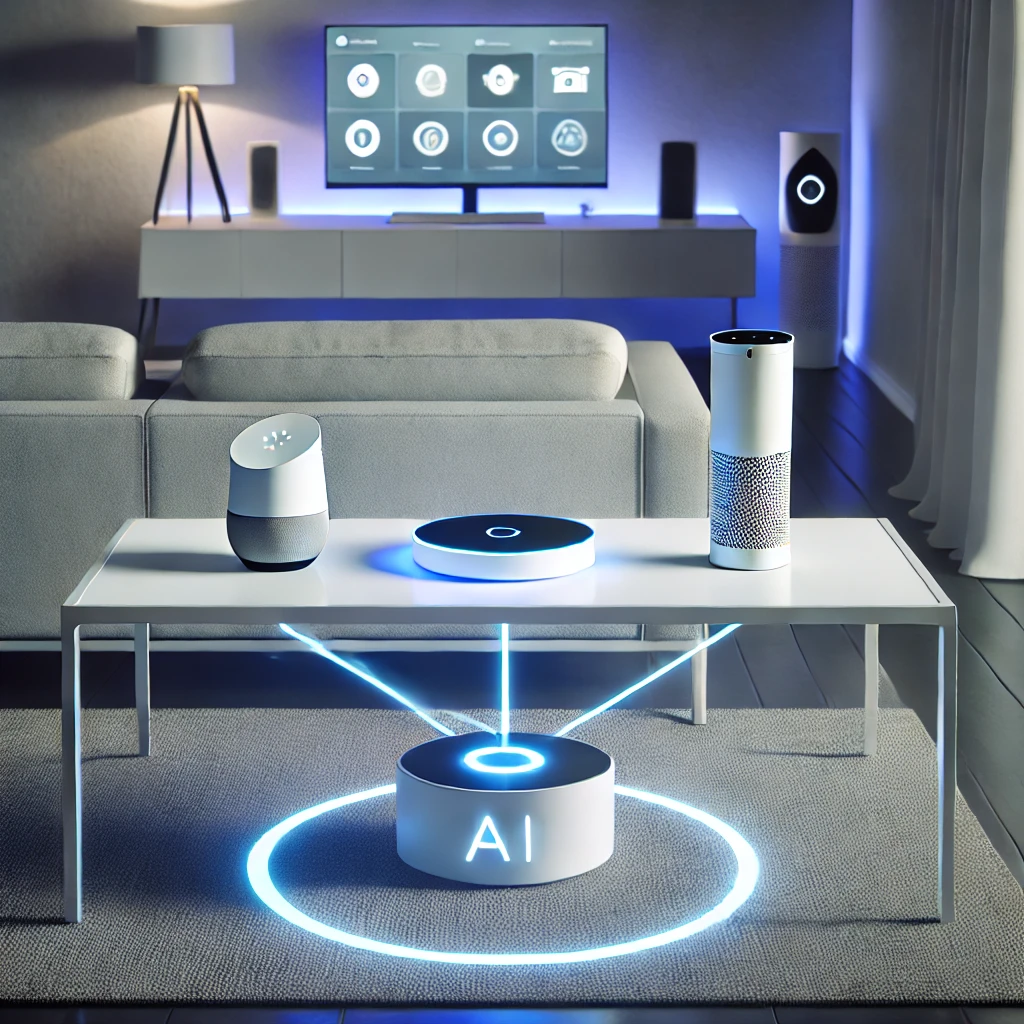
The potential applications of these AI-powered PCs extend beyond traditional computing tasks. Here are a few ways they enhance smart home AI:
Optimized Control Hubs: By integrating an AI-capable PC into a smart home system, homeowners can enjoy a central hub that processes data more efficiently. This means faster automation responses, improved voice assistant interactions, and seamless management of connected devices. The inclusion of Matter compatibility ensures these PCs can work with a wide range of current and future smart devices.
Advanced Security Monitoring: With NPUs capable of handling real-time image and video analysis, these PCs can power advanced home surveillance systems. They enable quicker identification of potential threats, enhancing overall home security.
Adaptive Learning Environments: AI PCs can learn homeowners’ habits over time and adjust systems accordingly. For instance, these computers can optimize heating, lighting, and appliance schedules based on real-time data analysis, saving energy and providing personalized comfort.
Practical Applications of AI Agents in Smart Homes
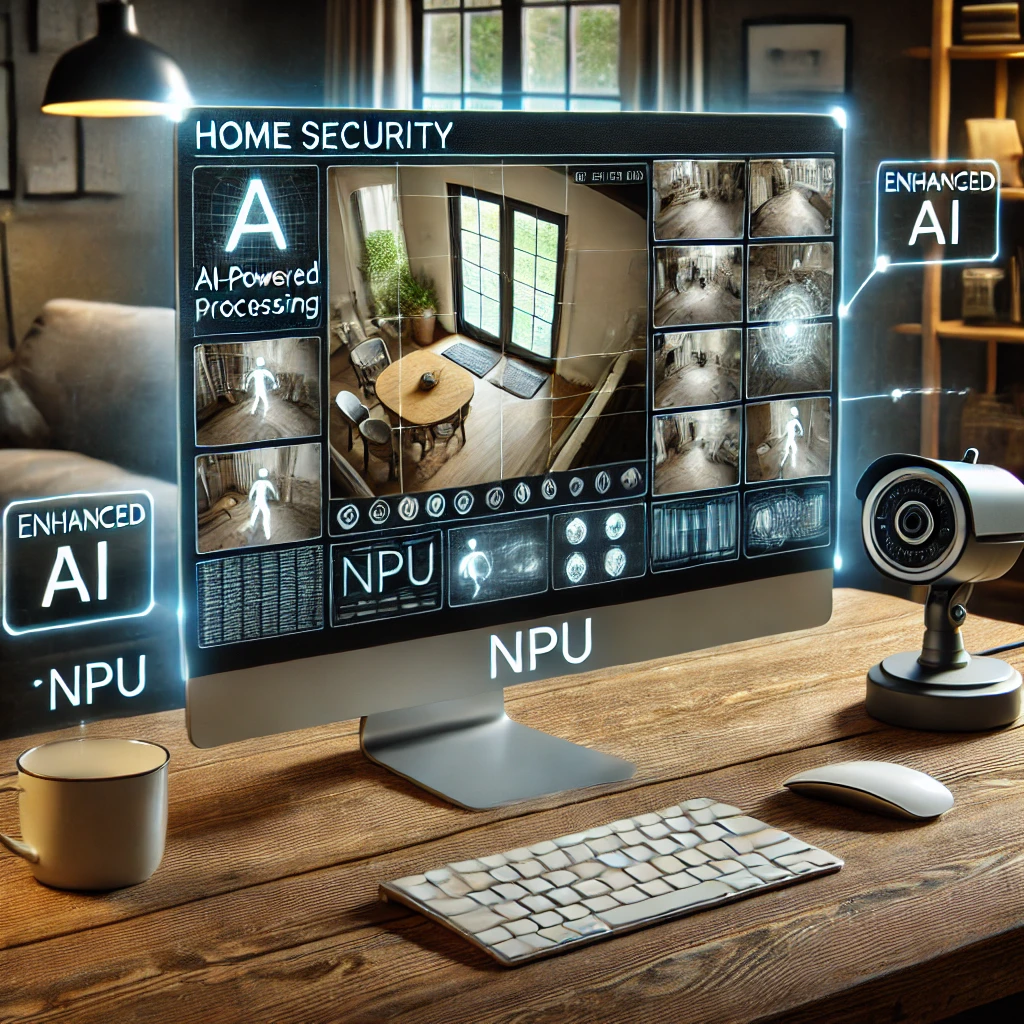
One of the most exciting capabilities of these next-gen AI-driven PCs is their ability to host and run custom AI agents. These agents are specialized programs that can automate, learn, and interact with different systems to enhance smart home experiences. Here’s how AI agents can be practically applied:
Personalized Assistance: AI agents can act as personal assistants, scheduling events, sending reminders, and managing smart home devices. They can use real-time data from sensors and user interactions to offer proactive suggestions.
Proactive Security Monitoring: An AI agent can continuously analyze video feeds for suspicious activity and send alerts or trigger alarms without human intervention. This boosts the efficiency of home security systems by adding an extra layer of intelligent oversight.
Custom Automation Routines: Homeowners can program AI agents to learn their daily habits and adjust settings automatically. For example, an agent could turn off lights, adjust heating, and ensure appliances are turned off based on the homeowner’s usual departure time.
Predictive Maintenance: AI agents can monitor connected devices and sensors to predict and prevent issues, such as water leaks or unusual energy usage patterns. This allows homeowners to address potential problems before they escalate.
Integrated Ecosystem Management: With AI agents, these PCs can act as a command center for coordinating and optimizing the performance of all smart devices, enhancing overall responsiveness and reliability.
The Growing Role of AI in Smart Homes
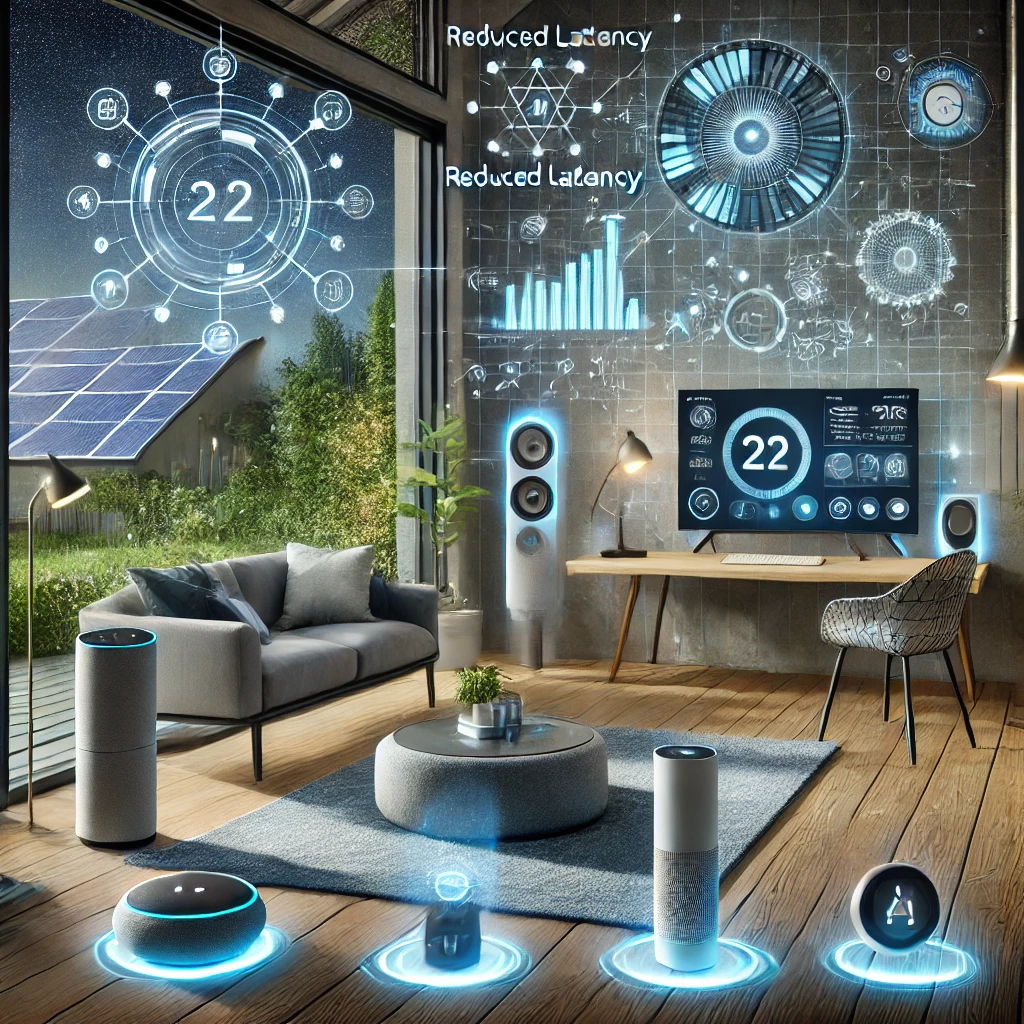
As smart homes become more sophisticated, the demands on processing power and AI integration grow. With next-gen AI PCs, users can experience:
- Reduced Latency: Faster data processing leads to more responsive smart home applications.
- Enhanced Compatibility: These systems are built with future-proofing in mind, including compatibility with standards like Matter to integrate seamlessly with next-gen smart devices.
- Sustainable Living: Energy-efficient designs contribute to eco-friendly practices, aligning with the increasing global emphasis on sustainability.
Conclusion

The emergence of AI-driven desktop PCs like the Intel Core Ultra 200S series marks a significant milestone in smart home technology. By bringing powerful, real-time AI capabilities to personal computing, these innovations transform the way homes operate, making them smarter, safer, and more adaptable than ever before. Exploring these technologies means stepping into a future where AI seamlessly integrates with everyday life, providing both convenience and enhanced control.
With the addition of customizable AI agents, these PCs not only serve as processing powerhouses but also as dynamic contributors to a connected and intelligent home ecosystem. These advancements represent an evolution in how we approach smart home ecosystems, allowing for greater efficiency and personalization in daily living.


